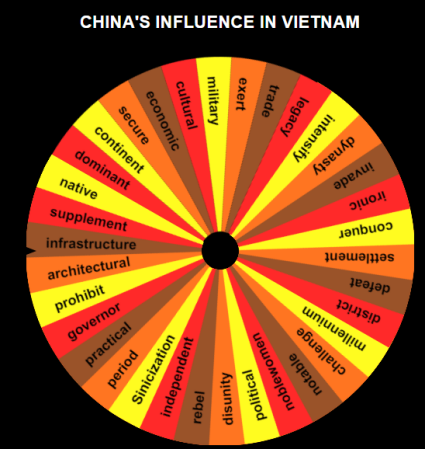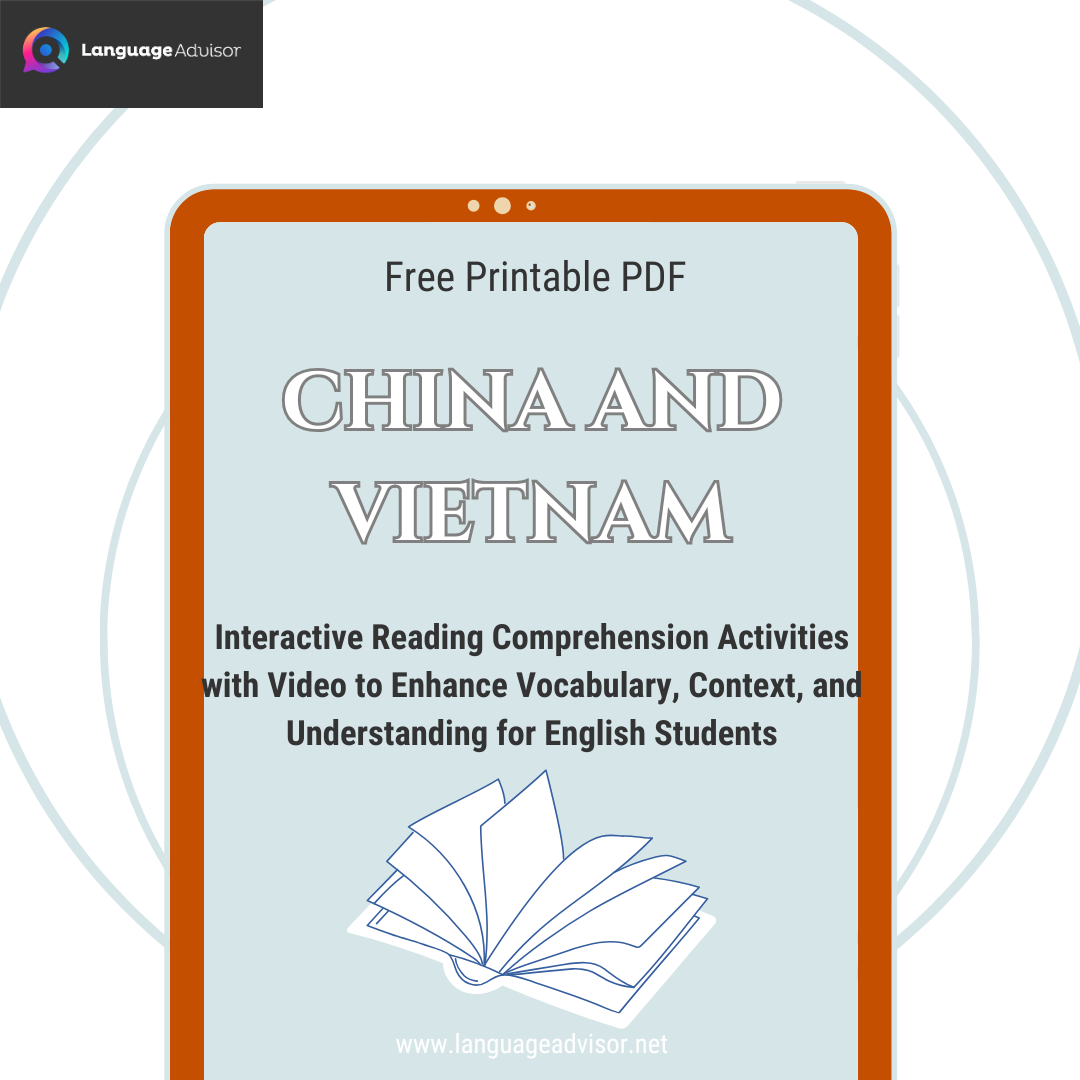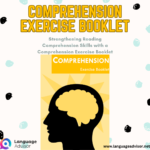China and Vietnam. Interactive Reading Comprehension Activities with Video to Enhance Vocabulary, Context, and Understanding for English Students. Free Printable PDF
China and Vietnam

Improving reading comprehension is a vital skill for English learners at all levels. It goes beyond just understanding the words on the page, but also involves grasping meaning, context, and intent behind a text. One effective way to enhance reading comprehension is by integrating videos alongside written exercises. Video content can provide visual cues, context, and engagement that help reinforce the learning process. In this blog post, we’ll explore a fun and interactive reading comprehension activity that combines written passages with video resources to deepen understanding and make learning more enjoyable.

China and Vietnam – Reading Comprehension
When we talk about East Asia, we’re usually talking about China. China is a big nation, and historically was the dominant power in this part of the continent. However, it wasn’t the only culture of East Asia, and it would be a mistake to act like all East Asian societies are basically Chinese. They’re not. In fact, some had to fight long and hard to secure that fact. One example is Vietnam. Vietnam has had an interesting relationship with China throughout history. Through various economic, cultural, or military means, China has exerted a lot of influence onto Vietnam. But Vietnam is not China, and the Vietnamese people are not Chinese. Forget that, and you might end up making someone in Vietnam pretty unhappy.
History
Let’s start by looking at the basic history of China and Vietnam’s relationship. From the records we have, we can see that China and Vietnam had trade and cultural relationships for pretty much as long as each society existed. So from the beginning, the Chinese did leave some legacies in Vietnam culture, legacies like rice farming. However, this was really intensified in the 3rd century BCE when the Han dynasty of China began invading parts of what is now Vietnam. In an ironic twist, a former Chinese general named Trieu Da formed a major Vietnamese kingdom called Nam Viet (sound familiar?) to fight off the Han emperors.
As the Han conquered parts of Vietnam, they brought in Chinese cultural practices and built Chinese settlements. Eventually, in 111 BCE the Han dynasty defeated Nam Viet and incorporated it into the empire. Nam Viet was divided into nine military districts under Chinese rule.
For nearly a millennium, China ruled over Vietnam. There were challenges to this. Most notably, the Vietnamese noblewomen called the Trung Sisters managed to kick China out of Vietnam in 40 CE. However, the Han military returned three years later and reconquered the kingdom. It would not be until the end of the T’ang dynasty that political disunity in China gave the Vietnamese a solid chance to rebel. In 939 CE, Vietnamese rebellions defeated the Chinese military and established an independent Vietnam.
Sinicization
The nearly 1000-year period of Chinese rule had some profound impacts on Vietnamese culture, and this was no accident. China was very confident in its belief that it was the greatest society in the world, and attempted to convert all Vietnamese peoples into Chinese citizens, a process called sinicization. Sinicization had practical applications as well; the Chinese governors believed Vietnam was less likely to rebel if the people all thought of themselves as Chinese and gave up their Vietnamese identity.
To achieve this, Vietnamese customs, traditions, and even clothing and hairstyles were prohibited by law. The Vietnamese people were forced to dress in Chinese manners, adhere to Chinese rituals, and learn to read and speak the Chinese language. This process was both a success and failure. Chinese mannerism and styles became widely (and in some cases enthusiastically) adopted. China was a cultural epicenter of East Asia, so many Vietnamese people were already excited to try Chinese things. Plus, as the Chinese came in, they brought with them the most advanced architectural and building technologies in that part of the world. Vietnam was able to grow economically and politically largely thanks to Chinese infrastructure.
However, Chinese things never actually replaced Vietnamese customs, they simply supplemented them. Even those who read and wrote only in Chinese generally spoke in native languages. So, did the sinicization bring many Chinese traditions into Vietnam? Yes, but did they make the Vietnamese start thinking of themselves as purely Chinese? No.
dominant – adj. exercising influence or control; (of genes) producing the same phenotype whether its allele is identical or dissimilar; noun (music) the fifth note of the diatonic scale; an allele that produces the same phenotype whether its paired allele is identical or different
continent – adj. having control over urination and defecation; abstaining from sexual intercourse; noun the European mainland; one of the large landmasses of the earth
secure – adj. free from fear or doubt; easy in mind; free from danger or risk; not likely to fail or give way; kept safe or defended from danger or injury or loss; financially sound; able to withstand attack; verb assure payment of; make certain of; furnish with battens; cause to be firmly attached; fill or close tightly with or as if with a plug; get by special effort
economic – adj. using the minimum of time or resources necessary for effectiveness; financially rewarding; concerned with worldly necessities of life (especially money); of or relating to the science of economics; of or relating to an economy, the system of production and management of material wealth
cultural – adj. denoting or deriving from or distinctive of the ways of living built up by a group of people; relating to the raising of plants or animals; of or relating to the shared knowledge and values of a society; of or relating to the arts and manners that a group favors
military – adj. associated with or performed by armed services as contrasted with civilians; characteristic of or associated with soldiers or the military; of or relating to the study of the principles of warfare; noun the military forces of a nation
exert – verb put to use; make a great effort at a mental or physical task; have and exercise
trade – noun the skilled practice of a practical occupation; the commercial exchange (buying and selling on domestic or international markets) of goods and services; the business given to a commercial establishment by its customers; an equal exchange; a particular instance of buying or selling; people who perform a particular kind of skilled work; steady winds blowing from east to west above and below the equator; verb exchange or give (something) in exchange for; turn in as payment or part payment for a purchase; engage in the trade of; be traded at a certain price or under certain conditions; do business; offer for sale as for one’s livelihood
legacy – noun (law) a gift of personal property by will
Intensify – verb become more intense; make more intense, stronger, or more marked; make the chemically affected part of (a negative) denser or more opaque in order produce a stronger contrast between light and dark; increase in extent or intensity
dynasty – noun a sequence of powerful leaders in the same family
Invade – verb march aggressively into another’s territory by military force for the purposes of conquest and occupation; penetrate or assault, in a harmful or injurious way; occupy in large numbers or live on a host; to intrude upon, infringe, encroach on, violate
Ironic – adj. characterized by often poignant difference or incongruity between what is expected and what actually is; humorously sarcastic or mocking
conquer – verb overcome by conquest; to put down by force or authority; take possession of by force, as after an invasion
settlement – noun something settled or resolved; the outcome of decision making; a conclusive resolution of a matter and disposition of it; an area where a group of families live together; termination of a business operation by using its assets to discharge its liabilities; the act of colonizing; the establishment of colonies; a community of people smaller than a town; a body of people who settle far from home but maintain ties with their homeland; inhabitants remain nationals of their home state but are not literally under the home state’s system of government
defeat – noun an unsuccessful ending to a struggle or contest; the feeling that accompanies an experience of being thwarted in attaining your goals; verb win a victory over; thwart the passage of
district – noun a region marked off for administrative or other purposes; verb regulate housing in; of certain areas of towns
millennium – noun a span of 1000 years; the 1000th anniversary (or the celebration of it); (New Testament) in Revelations it is foretold that those faithful to Jesus will reign with Jesus over the earth for a thousand years; the meaning of these words have been much debated; some denominations (e.g. Jehovah’s Witnesses) expect it to be a thousand years of justice and peace and happiness
challenge – noun a demand by a sentry for a password or identification; questioning a statement and demanding an explanation; a formal objection to the selection of a particular person as a juror; a call to engage in a contest or fight; a demanding or stimulating situation; verb raise a formal objection in a court of law; ask for identification; issue a challenge to; take exception to
notable – adj. widely known and esteemed; worthy of notice; noun a celebrity who is an inspiration to others
noblewomen. – noun. A woman of high-rank in society.
political – adj. involving or characteristic of politics or parties or politicians; of or relating to your views about social relationships involving authority or power; of or relating to the profession of governing
disunity – noun lack of unity (usually resulting from dissension)
rebel – adj. used by Northerners of Confederate soldiers; noun `Johnny’ was applied as a nickname for Confederate soldiers by the Federal soldiers in the American Civil War; `greyback’ derived from their grey Confederate uniforms; a person who takes part in an armed rebellion against the constituted authority (especially in the hope of improving conditions); someone who exhibits great independence in thought and action; verb take part in a rebellion; renounce a former allegiance; break with established customs
Independent – adj. not dependent on or conditioned by or relative to anything else; not contingent; free from external control and constraint; (of a clause) capable of standing syntactically alone as a complete sentence; not controlled by a party or interest group; (of political bodies) not controlled by outside forces; noun a writer or artist who sells services to different employers without a long-term contract with any of them; a neutral or uncommitted person (especially in politics)
Sinicization – noun a process whereby non-Chinese societies come under the influence of Chinese culture
period – noun a stage in the history of a culture having a definable place in space and time; an amount of time
practical – adj. having or put to a practical purpose or use; concerned with actual use or practice; guided by practical experience and observation rather than theory; being actually such in almost every respect
governor – noun a control that maintains a steady speed in a machine (as by controlling the supply of fuel); the head of a state government
prohibit – verb command against
architectural – adj. of or pertaining to the art and science of architecture
Infrastructure – noun the stock of basic facilities and capital equipment needed for the functioning of a country or area; the basic structure or features of a system or organization
supplement – noun a quantity added (e.g. to make up for a deficiency); a supplementary component that improves capability; textual matter that is added onto a publication; usually at the end; verb add as a supplement to what seems insufficient; serve as a supplement to; add to the very end
native – adj. belonging to one by birth; characteristic of or existing by virtue of geographic origin; characteristic of or relating to people inhabiting a region from the beginning; as found in nature in the elemental form; noun a person who was born in a particular place; an indigenous person


Wheel decide: https://wheeldecide.com/index.php?id=519159
Which word works?
conquer dominant independent notable millennium practical natives
- The company is now ____________ in its market.
- We will ____________them and return here, once we have created an army.
- When the speaker used a _______ quote in her speech, everyone in the audience knew.
- Another laboratory has provided __________ confirmation of the test results.
- A _____________ is one-thousand years.
- It looks pretty, but it has no __________ use in the real world.
- These new laws will affect immigrants and ________ alike.
Paraphrasing
‘The disunity on our team all started when some of our members began to dislike the leader.’
‘The vitamin was added as a supplement to her diet to improve her blood circulation.’
| Vocabulary word | Synonym |
| Secure | |
| Trade | |
| Invade | |
| Defeat | |
| Challenge | |
| Rebel | |
| Notable | |
| Period | |
| Independent |

Using video in reading comprehension activities not only enhances students’ engagement but also aids in building critical language skills such as listening, vocabulary development, and contextual understanding. By incorporating multimedia into traditional reading lessons, teachers can cater to various learning styles and keep students motivated. We encourage you to try out this method and observe how it transforms reading into a more dynamic, interactive experience for your English learners.

DOWNLOAD THE PDF FOR FREE






